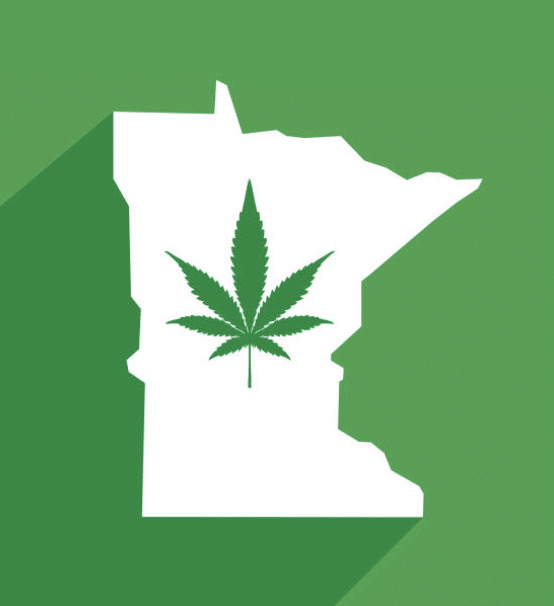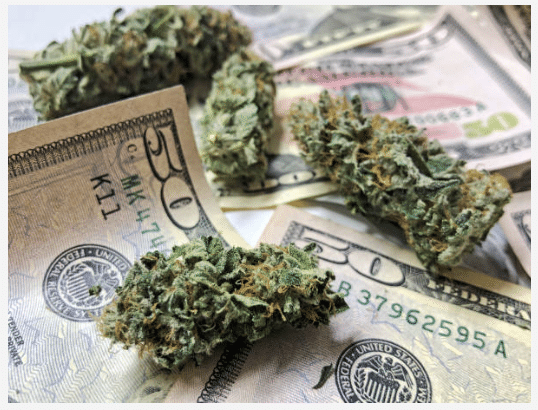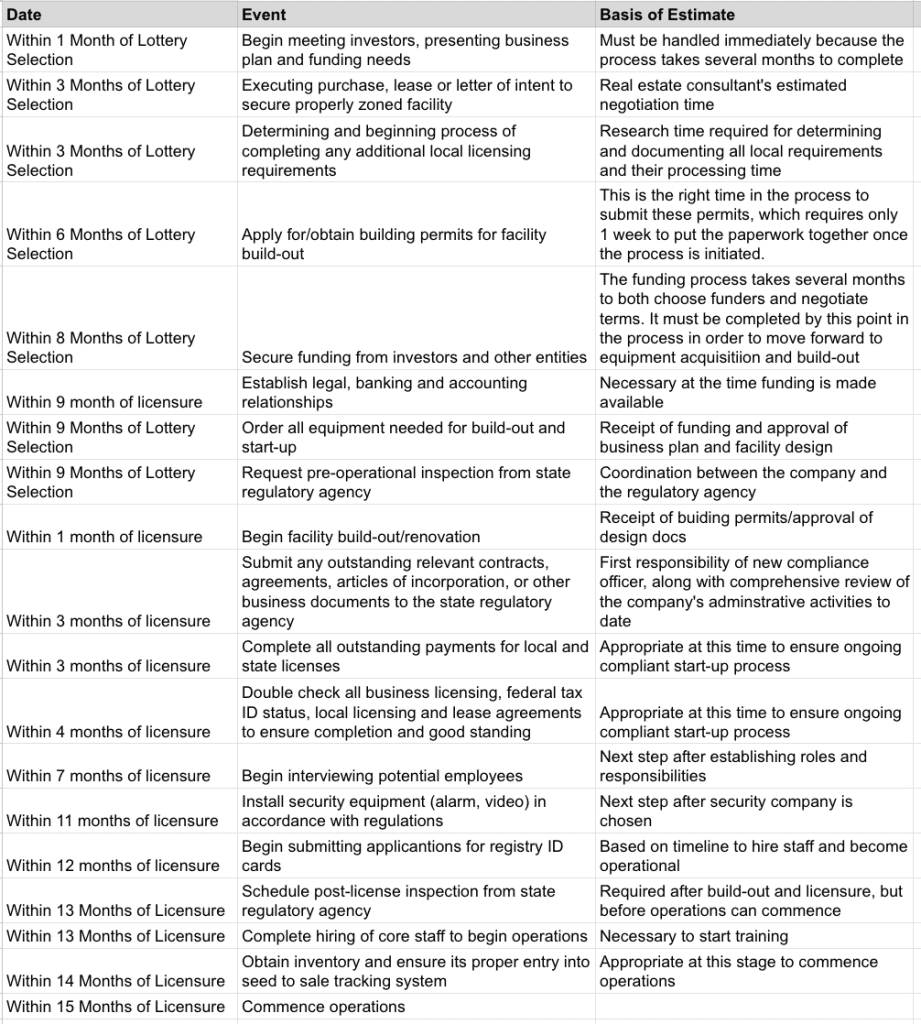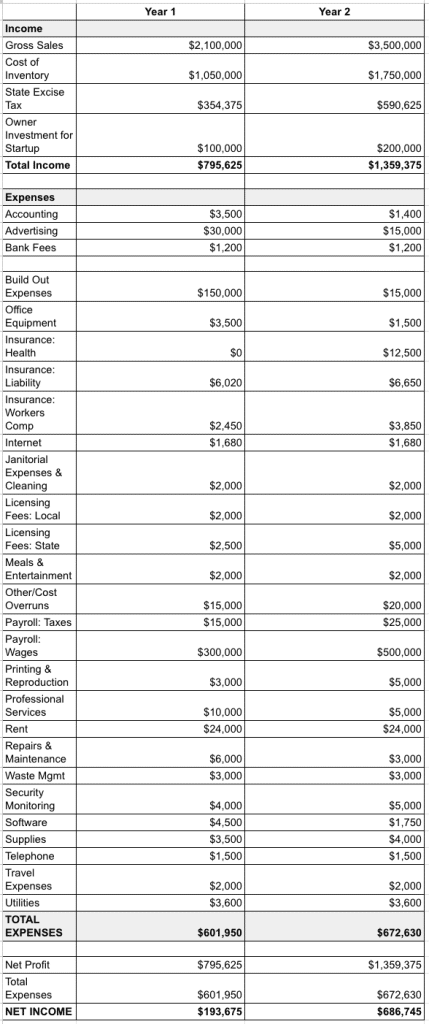Minnesota Cannabis Dispensary Licensing
Understanding the Minnesota Dispensary Licensing Process
 If you are applying for a dispensary license in Minnesota, you have two ways of going about it, and it’s ok to follow both tracks at the same time, since one of them is a long-shot. The deadline is approaching! March 14th, 2025, so it’s time to get moving!
If you are applying for a dispensary license in Minnesota, you have two ways of going about it, and it’s ok to follow both tracks at the same time, since one of them is a long-shot. The deadline is approaching! March 14th, 2025, so it’s time to get moving!
The first is to enter the Minnesota cannabis license lottery for one of 75 social equity retail licenses and 75 general licenses that will be awarded. The window of application acceptance for that lottery is February 18th, 2025 – March 14th, 2025. It’s reasonable to expect many hundreds of lottery entrants, based on how these things have gone in other states, and in Minnesota in last year. If you haven’t already been verified as a social equity applicant, that window is closed and will not re-open (it was a short-term opportunity).
The second way to become a dispensary operator in Minnesota is to apply for a MN cannabis microbusiness license. Minnesota microbusiness licenses are uncapped and applications will be accepted until Marfh 14th. When you have a microbusiness license, you can cultivate, manufacture and sell adult-use cannabis. You can even have a cannabis consumption lounge if your local municipality will allow it. You can also just operate a dispensary with no other production activities (endorsements).
Can I Operate a Microbusiness Dispensary Without Cultivation or Manufacturing?
Yes! We initially thought this would not be allowed, but it is. The microbusiness license allows you to choose only one “endorsement” and it also allows you to obtain cannabis flower from other microbusinesses, mezzobusinesses, wholesalers and manufacturers. You can only have 1 location, where lottery winners for retail licenses will be allowed to have up to 5 locations.
How to Get a Minnesota Dispensary License
To get a cannabis dispensary license in Minnesota, start by choosing between these main two routes, both of which require quite a bit of paperwork to apply. The specific Minnesota cannabis dispensary license requirements are discussed in more detail below.
In a general sense, the MN cannabis dispensary application process include these steps:
- Step 1: Research and Planning (You are doing that now!)
- Step 2: Application Submission (We can help you with this.)
- Step 3: Review and Approval (This will take several months for all necessary steps)
- Step 4: Licensing and Operations
Cut to the Chase to See Our Pricing and Template Options
What are the Specific Requirements for a Dispensary License in Minnesota?
The Office of Cannabis Management (OCM) has published a Guide for the Minnesota Cannabis Application Process (scroll down to the middle of the landing page when you click that link to see the pdf) that all types of applicants will need to upload for a Minnesota retail cannabis application in order to complete their submissions. Essentially, the Minnesota dispensary lottery requirements are the same as the microbusiness requirements, except that microbusiness applicants need to submit a different operations plan with their applications.
The following is the list of “required worksheets” you’ll need for your application.
Application Documents and Forms for the Minnesota Cannabis Dispensary License
- Disclosure of Ownership and Control (We will help you prepare this)
- Preliminary Security Plan (We will prepare this for you)
- Preliminary Business Plan (We will prepare this for you)
- Attestation of Labor Peace Agreement (We will show you how to get this from a Labor Organization)
- Preliminary Training and Educational Plan for Employees (We will prepare this for you)
- Preliminary SOP Quality Assurance (We will prepare this for you)
- Preliminary SOP Inventory Control, Storage, and Diversion Prevention (We will prepare this for you)
- Preliminary SOP Accounting and Tax Compliance (We will prepare this for you)
- Preliminary Operation Plan (We will prepare this for you)
GO STRAIGHT TO OUR MINNESOTA CANNABIS APPLICATION TEMPLATES & SERVICES
 The concept of fillable pdf worksheets for cannabis license applications has been used recently in Delaware and Maryland, so this is familiar work for us. Minnesota used something similar last July when the first round of social equity lottery qualification for cannabis licenses was done. If you look closely at the licensing processes of various states, they all borrow ideas from each other. The list above, for example, uses SOP titles that have been mimicked exactly from New Jersey and Mississippi.
The concept of fillable pdf worksheets for cannabis license applications has been used recently in Delaware and Maryland, so this is familiar work for us. Minnesota used something similar last July when the first round of social equity lottery qualification for cannabis licenses was done. If you look closely at the licensing processes of various states, they all borrow ideas from each other. The list above, for example, uses SOP titles that have been mimicked exactly from New Jersey and Mississippi.
So when answering the question of how to qualify for the Minnesota dispensary lottery, you first create an account in the application portal, then after February 18th, 2025, you can upload all of the required documentation, pay the fee, and wait for the lottery this summer.
How Much Does a Cannabis Dispensary License Cost in Minnesota?
 The Minnesota cannabis dispensary license application fee is $2500, which is non-refundable, and the initial annual fee is $2500. The annual fee thereafter is $5000.
The Minnesota cannabis dispensary license application fee is $2500, which is non-refundable, and the initial annual fee is $2500. The annual fee thereafter is $5000.
The microbusiness application fee is only $500 with no initial annual fee and an annual renewal fee thereafter of $2000.
Minnesota cannabis dispensary license fees are higher than some states, but lower than many others. The main challenge is that most MN dispensary lottery entrants will pay $2500 and not win the lottery, thereby losing their money.
How Long Does it Take to Get a Cannabis Retail License in Minnesota?
The OCM will hold the lottery for dispensary licenses in May or June, and it will take several more months for lottery winners to get final approval to operate. Minnesota will start issuing its first MN cannabis retail licenses this summer.
There are many step involved with completing the MN cannabis licensing process and getting local approvals to operate. This time period will also be spent securing financing and buying or leasing a suitable, properly zoned facility.
Timeline for Obtaining a Dispensary License
Here is a sample timeline for how the scheduling might go:
Challenges Unique to the Minnesota Dispensary License Application
The main difference between retail applicants and other types of MN cannabis applicants is that 150 licenses for larger business entities (up to 5 locations) will be awarded for the time being (and maybe for the next several years). Winners of these licenses will have a an opportunity to expand in ways that microbusiness retailers will not.
 The other difference/challenge with MN dispensary business license holders is that local municipal approval for retail space could be more difficult to establish. Municipalities in Minnesota can limit dispensary numbers to “no more than 1 per every 12,500 residents”. They can also limit zoning and require approvals of neighbors at public hearings to allow a cannabis dispensary to operate locally. The MN dispensary application requirements will be otherwise the same as all applications for lottery participation. It will cost $2500 to enter the lottery, and we anticipate a few thousand entries considering that state residency is not a requirement.
The other difference/challenge with MN dispensary business license holders is that local municipal approval for retail space could be more difficult to establish. Municipalities in Minnesota can limit dispensary numbers to “no more than 1 per every 12,500 residents”. They can also limit zoning and require approvals of neighbors at public hearings to allow a cannabis dispensary to operate locally. The MN dispensary application requirements will be otherwise the same as all applications for lottery participation. It will cost $2500 to enter the lottery, and we anticipate a few thousand entries considering that state residency is not a requirement.
How To Get Started With Your Minnesota Cannabis Retail License Application
Applying for a cannabis dispensary license in Minnesota involves these basic steps. After February 17th, 2025:
- Create an account at the MN CRC’s application portal
- Become familiar with the information that’s in the portal and the document requirements.
- Get to know the MN cannabis regulations issued by the the OCM and your local municipalities, as well as the statute that legalized cannabis in Minnesota. We know regulatory text is tedious to interpret, but the dispensary applicants who learn it first and learn it best will have an advantage over everyone else. If you know all of the rules and limitations of your license type, you will much more easily navigate the process.
- Reach out to Minnesota Cannabis License Consultants (like us) and talk shop. You will always learn something from each professional you talk to who is also trying to break into or serve the cannabis business in the state.
- Gain access to important information as soon as it becomes available. You can set Google news alerts for Minnesota Cannabis Licensing.
- Start searching for suitable properties. The location can make you or break you, and the sooner you find it, the cheaper it will be.
- Start securing investors who will help you handle capital costs, and start working on a contract to seal a deal with them. (Contracts can take months, and it’s very common for negotiations to break down due to misunderstandings or disagreements about control and ownership percentages.)
- Start putting your business plan together (We can help with that!)
- Be aware of the application submission date and everything you need to submit, so you can be among the first to apply for a cannabis dispensary license, both locally and at the state level. As mentioned above, if you are entering the lottery, the submission window is February 18th – March 14th, 2025. If you are applying for a microbusiness license, there is no deadline, but there will be a rush and a bidding war for properly zoned locations, so don’t wait until it’s too late to focus on that.
What are the Eligibility and Qualifications for a Dispensary License in Minnesota?
 Minnesota cannabis license eligibility is open to all US Citizens 21 and over. There is no state residency requirement and the disqualifying criminal offenses are minimal. That means pretty much anyone can get a MN dispensary license.
Minnesota cannabis license eligibility is open to all US Citizens 21 and over. There is no state residency requirement and the disqualifying criminal offenses are minimal. That means pretty much anyone can get a MN dispensary license.
As far as experience and qualifications, dispensaries are really just retail stores with higher security and compliance requirements. Any adult with good business skills and enough investment capital should be able to assume ownership of one of the upcoming cannabis dispensaries and do just fine if they submit a good application, have a good location and stay in contact with the OCM to ensure full compliance with MN cannabis laws and regulations.
Minnesota Dispensary Licensing Fees and Costs
Planning for the financial requirements associated with an MN dispensary license has several considerations. Start-up costs include:
- The application fee
- Costs of application support (if you buy MN Cannabis Application Support Documents)
- Costs associated with local approvals (varies depending on how much you do yourself)
- Costs for a location (are you purchasing or leasing?)
- Costs for build-out and compliance
- Initial inventory costs
- Operational costs for the first few months
Minnesota Cannabis Retail Dispensary Budget Sample
One of the experts on our team has operated multiple cannabis dispensaries in California. He created this sample dispensary budget to help our customers (and website visitors) make solid plans for financing.
This pro forma budget forecasts income and expenses for Years 1-3 for adult-use retail dispensary. The estimates are based on assumptions and consultation with cannabis business professionals. Actual income and expenses could vary quite a lot depending on size and location.
What the above dispensary budget shows is that, if you can get to 60 or more transactions per day, you can make a good living operating a cannabis dispensary in Minnesota. Capital expenses for an average adult-use retail dispensary can be covered with about $250,000, assuming the building is in good shape and has good infrastructure. Of course, if your location is in the middle of Minneapolis, you could be doing 300 transactions per day and making a lot more money. That’s why it’s hard to do budgeting that applies to everyone; each situation is so different, but for retailers, nothing is more important than location.
Further Resources and Support for Minnesota Dispensary Applicants
Minnesota Dispensary License Regulations (draft status until summer 2025)
Minnesota Cannabis Dispensary Laws (The Original Legislation and the 2024 Update)
The Minnesota dispensary license rules are still in flux. We will stay updated on them and edit this website accordingly.
Check out Our Minnesota Cannabis Application Documents and Services
Read about the MN Cannabis Microbusiness Licensing Process
Read about the MN Cannabis Cultivation Licensing Process
Read about the MN Cannabis Manufacturer Licensing Process
Or back up a level and read the Overview of Minnesota Cannabis Licensing


